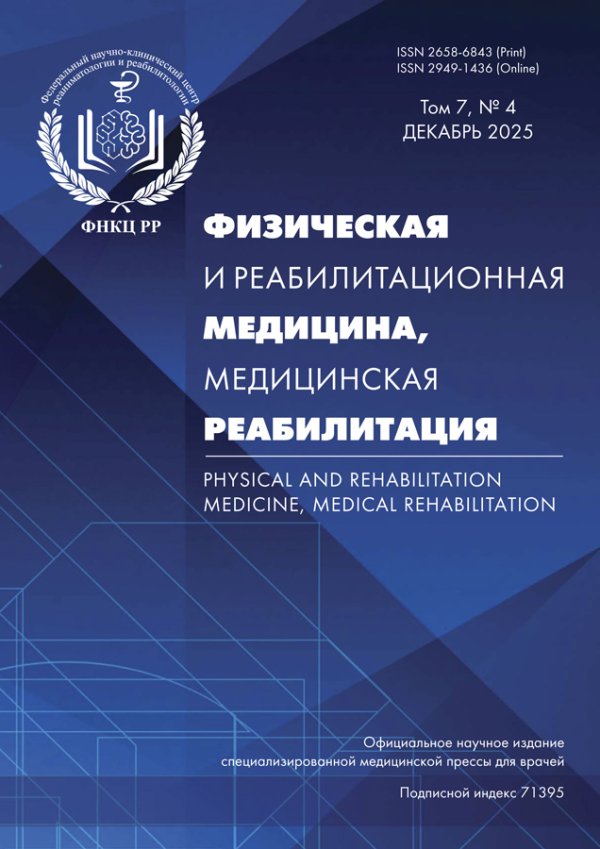Пробиотики, психобиотики и метабиотики: проблемы и перспективы
- Авторы: Олескин А.В.1, Шендеров Б.А.2
-
Учреждения:
- Федеральное государственное бюджетное образовательное учреждение высшего образования «Московский государственный университет имени М.В. Ломоносова»
- Федеральное государственное бюджетное образовательное учреждение высшего образования «Московский государственный университет технологий и управления имени К.Г. Разумовского»
- Выпуск: Том 2, № 3 (2020)
- Страницы: 233-243
- Раздел: НАУЧНЫЙ ОБЗОР
- URL: https://journal-vniispk.ru/2658-6843/article/view/25811
- DOI: https://doi.org/10.36425/rehab25811
- ID: 25811
Цитировать
Полный текст
Аннотация
Микробиоте человеческого организма посвящено большое число публикаций последних десятилетий. Особенно важную роль играет микробиота кишечника, в первую очередь его «густонаселенной» микроорганизмами дистальной части (толстой кишки). В литературе кишечник рассматривается как самый большой пищеварительный, иммунный и эндокринный орган. Функционирование микробиоты осуществляется через продукцию множества микробных низкомолекулярных соединений, являющихся эффекторами, кофакторами и/или сигнальными молекулами, причем важную роль играют нейрохимические агенты. Для восстановления и улучшения микробной экологии человека используются различные лекарственные препараты, биологически активные добавки к пище, продукты функционального питания. Наиболее популярны из них те, которые содержат специально подобранные штаммы лактобацилл, бифидобактерий и других живых микроорганизмов (пробиотики), а также биологически активные соединения, связанные с метаболической активностью симбиотических микроорганизмов, — метабиотики. Среди пробиотиков выделяется подгруппа, которая обозначается в литературе как психобиотики — микроорганизмы или их компоненты, которые при введении в адекватных количествах улучшают здоровье пациентов с психиатрическими проблемами.
Полный текст
Открыть статью на сайте журналаОб авторах
Александр Владимирович Олескин
Федеральное государственное бюджетное образовательное учреждение высшего образования «Московский государственный университет имени М.В. Ломоносова»
Автор, ответственный за переписку.
Email: aoleskin@rambler.ru
ORCID iD: 0000-0002-6816-1615
SPIN-код: 7781-7886
д.биол.н., профессор
Россия, МоскваБорис Аркадьевич Шендеров
Федеральное государственное бюджетное образовательное учреждение высшего образования «Московский государственный университет технологий и управления имени К.Г. Разумовского»
Email: shenderof@yandex.ru
ORCID iD: 0000-0003-3298-6508
SPIN-код: 7566-7706
д.м.н., профессор
Россия, МоскваСписок литературы
- Олескин А.В., Шендеров Б.А., Роговский В.С. Социальность микроорганизмов и взаимоотношения в системе микробиота-хозяин: роль нейромедиаторов. — Москва: Изд-во МГУ, 2020. — 286 с. [Oleskin AV, Shenderov BA, Rogovskiy VS. Sotsial’nost’ mikroorganizmov i vzaimootnosheniya v sisteme mikrobiota-khozyain: rol’ neyromediatorov. Moscow: Izd-vo MGU; 2020. 286 р. (In Russ).]
- Kaper JB, Sperandio V. Bacterial cell-to-cell signaling in the gastrointestinal tract. Infect Immun. 2005;73: 3197–3209. doi: 10.1128/IAI.73.6.3197-3209.2005.
- Dinan TG, Stilling RM, Stanton C, Cryan JF. Collective unconscious: how gut microbes shape human behavior. J Psychiatr Res. 2015;63:1–9. doi: 10.1016/ j.jpsychires.2015.02.021.
- Олескин А.В., Эль-Регистан Г.И., Шендеров Б.А. Межмикробные химические взаимодействия и диалог микробиота-хозяин: роль нейромедиаторов // Микробиология. — 2016. — Т. 85. — № 1. — С. 1–24. [Oleskin AV, El’-Registan GI, Shenderov BA. Role of neuromediators in the functioning of the human microbiota: «Business talks» among microorganisms and the microbiota-host dialogue. Microbiology (Mikrobiologiya). 2016;85(1):1–22. (In Russ).] doi: 10.7868/S0026365616010080.
- Шендеров Б.А., Синица А.В., Захарченко М.М. Метабиотики: вчера, сегодня, завтра. — Санкт-Петербург: Крафт, 2017. — 79 с. [Shenderov BA, Sinitsa AV, Zakharchenko MM. Metabiotiki: vchera, segodnya, zavtra. Sankt Peterburg: Kraft; 2017. 79 р. (In Russ).]
- Van de Wouw M, Schellekens H, Dinan TG, Cryan JF. Microbiota-gut-brain axis: modulator of host metabolism and appetite. J Nutr. 2017;147:727–745. doi: 10.3945/jn.116.240481.
- Bik EM, Ugalde JA, Cousins J, et al. Microbial biotransformations in the human distal gut. Brit J Pharmacol. 2018;175(24):4404–4414. doi: 10.1111/bph.14085.
- Nicholson JK, Holmes E, Kinross J, et al. Host-gut microbiota metabolic interactions. Science. 2012;336: 1262–1267. doi: 10.1126/science.1223813.
- Lyte M. Microbial endocrinology in the microbiome-gut-brain axis: how bacterial production and utilization of neurochemicals influence behavior. Plos Pathogen. 2013;9(11):1003726. doi: 10.1371/journal.ppat.1003726.
- FAO/WHO. Health and nutritional properties and guidelines for evaluation. FAO Food and Nutritional, Paper No. 85. Scientific Research Publishing Inc. All Rights Reserved; 2006. Available from: https://www.scirp.org/reference/referencespapers.aspx?referenceid=1757344.
- Akinsemolu AA. The role of microorganisms in achieving the sustainable development goals. J Clean Prod. 2018; 182:139–155. doi: 10.1016/j.jclepro.2018.02.081.
- Ивашкин В.Т., Ивашкин К.В. Кишечный микробиом как фактор регуляции деятельности энтеральной и центральной нервной системы // Российский журнал гастроэнтерологии, гепатологии и колоректопроктологии. — 2017. — Т. 27. — № 5. — С. 11–19. [Ivashkin VT, Ivashkin KV. Intestinal microbiome as effective regulator of enteral and central nervous system activity. Russian journal of gastroenterology, hepatology, coloproctology. 2017;27(5):11–19. (In Russ).] doi: 10.22416/1382-4376-2017-27-5-11-19.
- Martins FS, Nardi RM, Arantes RM, et al. Scanning of yeasts as probiotics based on capacities to colonize the gastrointestinal tract and to protect against enteropathogenic challenge in mice. J Gen Appl Microbiol. 2005;51: 83–92. doi: 10.2323/jgam.51.83.
- Tejero-Sariñena S, Barlow J, Costabile A, et al. Antipathogenic activity of probiotics against Salmonella Typhimurium and Clostridium difficile in anaerobic batch culture systems: is it due to synergies in probiotic mixtures or the specificity of single strains. Anaerob. 2013;24:60–65. doi: 10.1016/j.anaerobe.2013.09.011.
- Kerry RG, Pradhan P, Samal D, et al. Probiotics: the ultimate nutritional supplement. In: J.K. Patra, G. Das, H.-S. Shin (ed.). Microbial Biotechnology. V. 2. Application in Food and Pharmacology. Singapore: Springer Nature Singapore Pte. Ltd.; 2018. Рр. 141–152. doi: 10.1007/978-981-10-7140-9_7.
- Liang S, Wu X, Jin F. Gut-brain physiology: rethinking psychology from the microbiota-gut-brain axis. Front Integr Neurosci. 2018;12(33):1–24. doi: 10.3389/fnint.2018.00033.
- Mishra M, Vishwakarma K, Singh J, et al. Exploring the multifaceted role of microbes in pharmacology. In: J.K. Patra, G. Das, H.-S. Shin (ed.). Microbial Biotechnology. V. 2. Application in Food and Pharmacology. Singapore: Springer Nature Singapore Pte. Ltd.; 2018. Рр. 319–329. doi: 10.1007/978-981-10-7140-9_7.
- Mazzoli R, Pessione E. The neuro-endocrinological role of microbial glutamate and GABA signaling. Front Microbiol. 2016;7:1934. doi: 10.3389/fmicb.2016.01934.
- Cryan JF, Dinan TG. Mind-altering microorganisms: the impact of the gut microbiota on brain and behavior. Nature Rev Neurosci. 2012;13:701–712. doi: 10.1038/nrn3346.
- O’Mahony SM, Clarke G, Borre YE, et al. Serotonin, tryptophan metabolism and the brain-gut-microbiome axis. Behav Brain Res. 2014;277:32–48. doi: 10.1016/ j.bbr.2014.07.027.
- Anh NL. Health-promoting microbes in traditional Vietnamese fermented foods: a review. Food Sci Human Wellness. 2015;4:147–161. doi: 10.1016/j.fshw.2015.08.009.
- Boddu RS, Divakar K. Metagenomic insights into environmental microbiome and their application in food/pharmaceutical industry. In: J.K. Patra, G. Das, H.-S. Shin (ed.). Microbial Biotechnology. V. 2. Application in Food and Pharmacology. Singapore: Springer Nature Singapore Pte. Ltd.; 2018. Рр. 23–38. doi: 10.1007/978-981-10-7140-9_7.
- Parashar A, Udayabanu M. Gut microbiota regulates key modulators of social behavior. Eur Neuropsychopharmocol. 2016;26:78–91. doi: 10.1016/j.euroneuro.2015.11.002.
- Bravo JA, Forsythe P, Chew V, et al. Ingestion of Lactobacillus strain regulates emotional behavior and central GABA expression in a mouse via the vagus nerve. Proc Natl Acad Sci U S A. 2011;108:16050–16055. doi: 10.1073/pnas.1102999108.
- Sampson TR, Mazmanian SK. Control of brain development, function, and behavior by the microbiome. Cell Host Microbe. 2015;17(5):565–576. doi: 10.1016/ j.chom.2015.04.011.
- Bercik P, Park AJ, Sinclair D, et al. The anxiolytic effect of Bifidobacterium longum NCC3001 involves vagal pathways for gut-brain communication. Neurogastroenterol Motil. 2011;23:132–1139. doi: 10.1111/j.1365-2982.2011.01796.x.
- Rohrscheib CE, Brownlie JC. Microorganisms that manipulate complex animal behaviours by affecting the host’s nervous system. Springer Sci Rev. 2013;1:133–140. doi: 10.1007/s40362-013-0013-8.
- Lyte M. Microbial endocrinology and the microbiota-gut-brain axis. In: M. Lyte, J.F. Cryan (eds.). Microbial Endocrinology: The Microbiota-Gut-Brain Axis in Health and Disease. Advances in Experimental Medicine and Biology. New York: Springer; 2014. Рр. 3–24. doi: 10.1007/978-1-4939-0897-4_1.
- Foster JA, Lyte M, Meyer E, Cryan JF. Gut microbiota and brain function: an evolving field in neuroscience. Int J Neuropsychopharmacol. 2016;19(5):pyv114. doi: 10.1093/ijnp/pyv114.
- We-Hsien L, Hsiao-Li C, Yen-Te H, et al. Alteration of behavior and monoamine levels attributable to Lactobacillus plantarum PS 128 in germ-free mice. Behaviour Brain Res. 2016;298(1):202–209. doi: 10.1016/ j.bbr.205.10.046.
- Desbonnet L, Garrett L, Clarke G, et al. Effect of the probiotic Bifidobaterium infantis in the maternal separation model of depression. Neuroscience. 2010;170:1179–1188. doi: 10.5056/jnm16018.
- Desbonnet L, Clarke G, Shanahan F, et al. Microbiota is essential for social development in the mouse. Mol Psychiatry. 2014;19:146–148. doi: 10.1038/mp.2013.65.
- Desbonnet L, Clarke G, Traplin A, et al. Gut microbiota depletion from early adolescence in mice: Implications for brain and behavior. Brain Behav Immun. 2015;48:165–173. doi: 10.1016/j.bbi.2015.04.004.
- Clarke G, Stilling RM, Kennedy PJ, et al. Gut microbiota: the neglected endocrine organ. Mol Endocrinol. 2014;28: 1221–1238. doi: 10.1210/me.2014-1108.
- Bercik P, Collins SM, Verdu EF. Microbes and the gut-brain axis. Neurogastoenterol Motil. 2012;24(5):405–413. doi: 10.1111/j.1365-2982.2012.01906.x.
- Buffington SA, Di Prisco GV, Auchtung TA, et al. Microbial reconstitution reverses maternal diet-induced social and synaptic deficits in offspring. Cell. 2016;165:1762–1775. doi: 10.1016/j.cell.2016.06.001.
- Rao AV, Bested AC, Beaulne TM, et al. A randomized, double-blind, placebo-controlled pilot study of a probiotic in emotional symptoms of chronic fatigue syndrome. Gut Pathogenesis. 2009;1:6. doi: 10.1186/1757-4749-1-6.
- Somit A, Peterson SA. (eds.). Research in biopolitics. Vol. 9. Biology and politics. The cutting edge. Bingley, UK: Emerald Group Publ. Ltd.; 2011. 255 p. doi: 10.1108/S2042-9940(2011)0000009005.
- Tillisch K, Labus J, Kilpatrick L, et al. Consumption of fermented milk product with probiotic modulates brain activity. Gastroenterol. 2013;144:1394–1401. doi: 10.1053/ j.gastro.2013.02.043.
- Steenbergen L, Sellaro R, van Hemert S, et al. A randomized controlled trial to test the effect of multispecies probiotics on cognitive reactivity to sad mood. Brain Behav Immunol. 2015;48:258–264. doi: 10.1016/j.bbi.2015.04.003.
- Benton D, Williams C, Brown A. Impact of consuming a milk drink containing a probiotic on mood and cognition. Eur J Clin Nutr. 2007;61(3):355–361. doi: 10.1038/sj.ejcn.1602546.
- Олескин А.В. Биополитика. Политический потенциал современной биологии. — М.: Научный мир, 2007. — 508 с. [Oleskin AV. Biopolitika. Politicheskiy potentsial sovremennoy biologii. Moscow: Nauchnyy mir; 2007. 508 р. (In Russ).]
Дополнительные файлы








